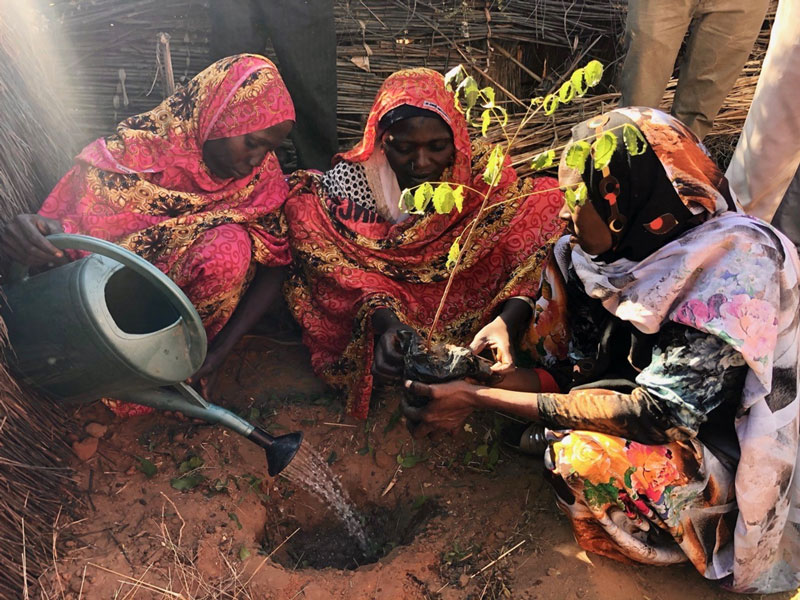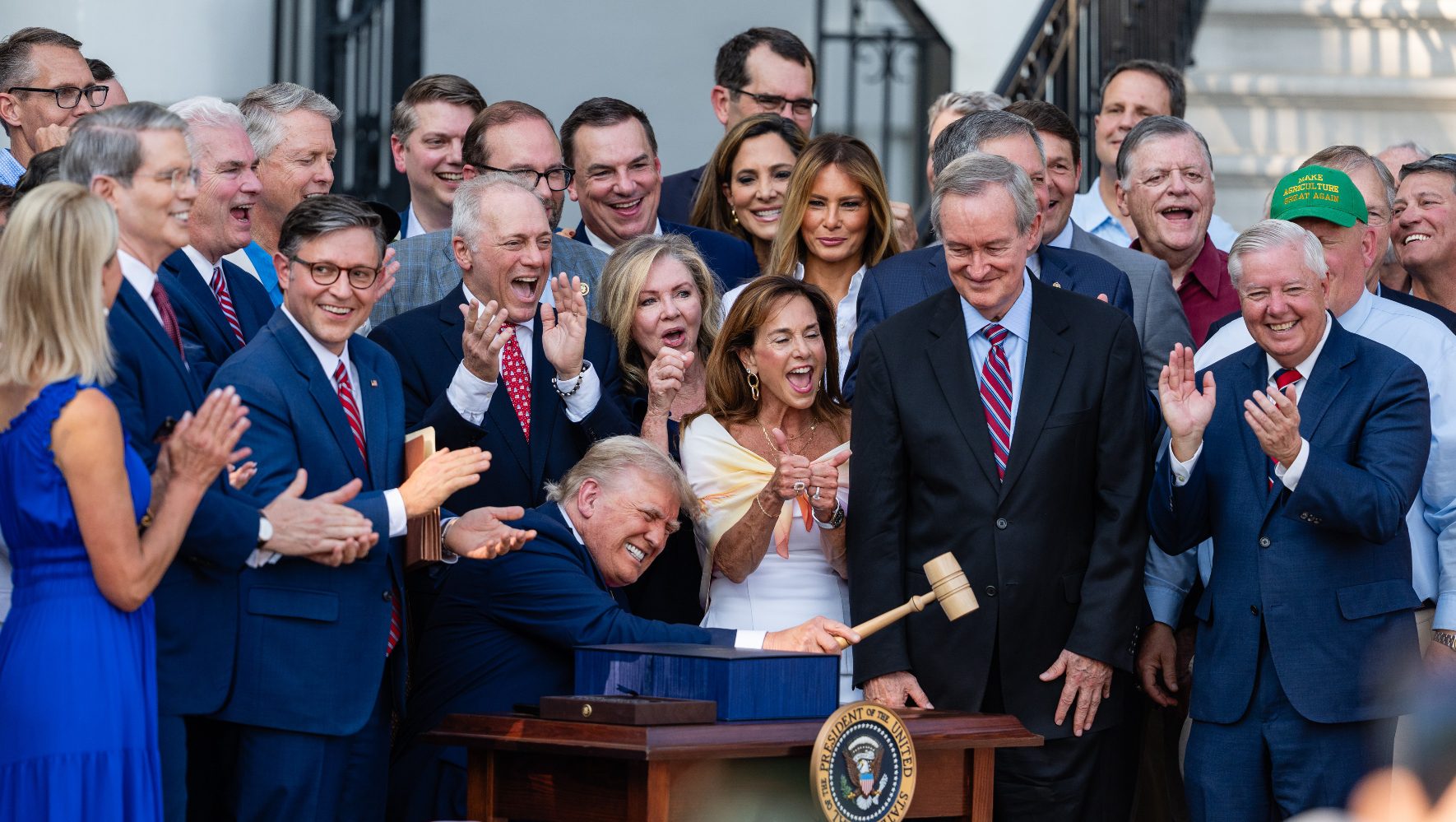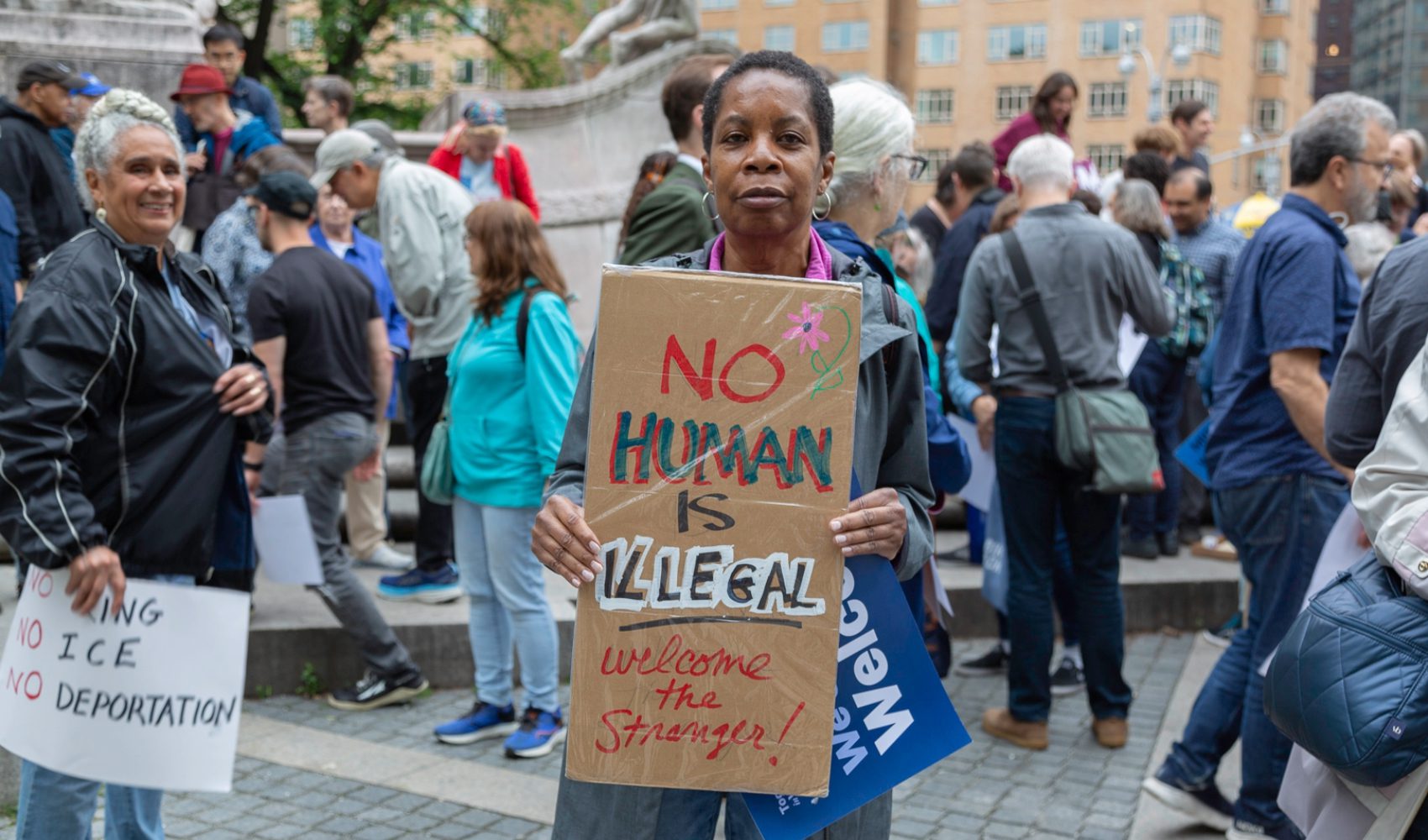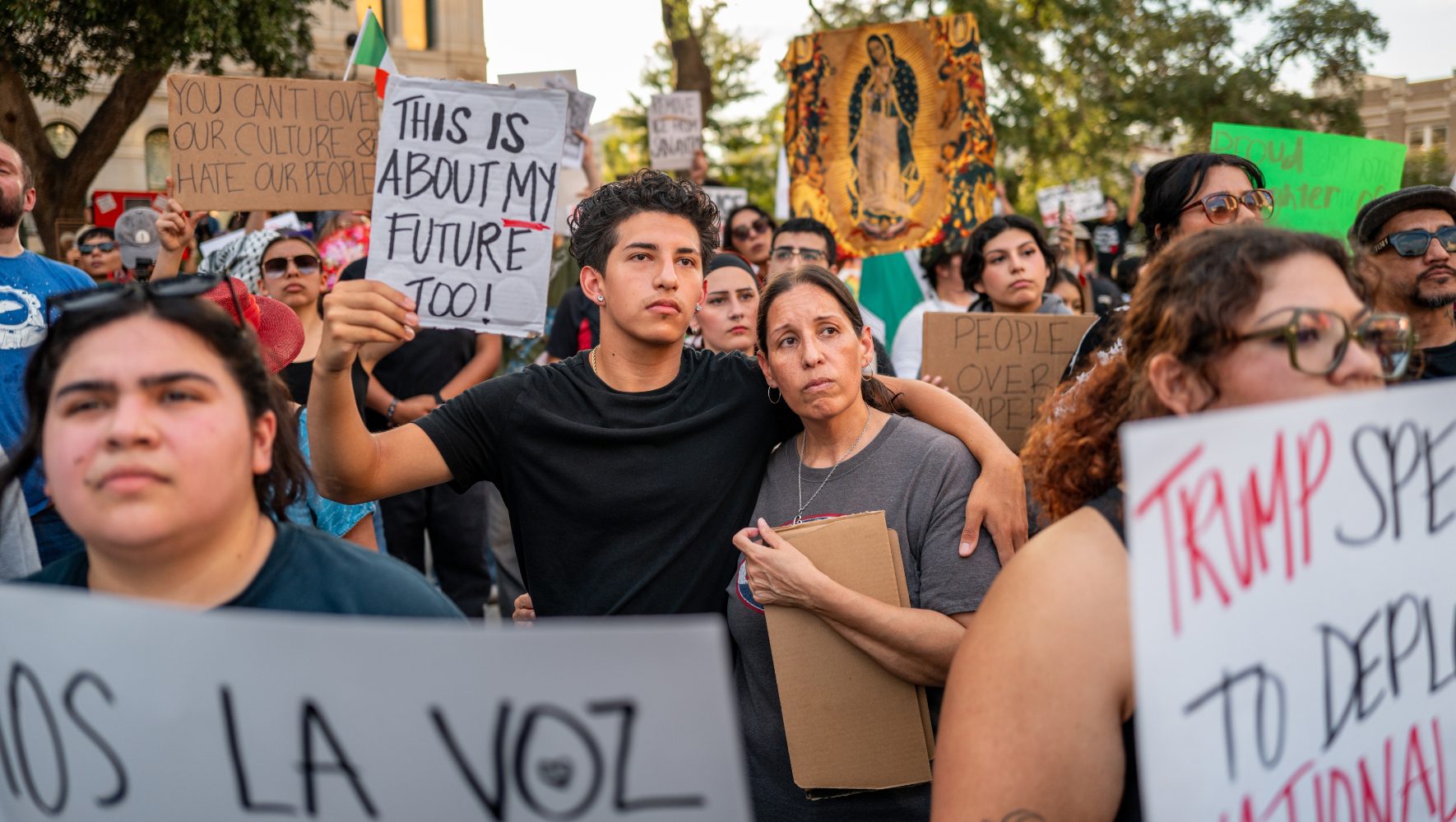Let's Talk About Climate Change and Refugees
By Sharon Samber, HIAS.org
Nov 04, 2021

As worry about forced displacement and its connection to climate change escalates, some positive developments continue, such as HIAS Chad's groundbreaking permagardening program that puts food agency back into clients’ hands.
(HIAS Chad)
Climate change is not theoretical, so HIAS is now talking about its significant impact on migration.
In a two-part online series that hundreds of people tuned into, HIAS and guests outlined the intersection of climate change and forced displacement of populations both within and beyond national borders. Although climate change may directly make homes uninhabitable, usually it is an amplifier of existing factors leading to migration. One of the factors in the Syrian refugee crisis, for example, was a record poor harvest that led to a lack of food, which then worsened political unrest.
As weather changes across the world become more severe and affect farming lands, hundreds of millions of people will be forced to choose between flight or famine. As a New York Times Magazine article phrased it, the result will almost certainly be the greatest wave of global migration the world has seen.
“This is the new frontier with forced migration policy,” said Naomi Steinberg, HIAS’ vice president for policy and advocacy in the second webinar, “Climate Displacement: The Future of Refugee Protection.”
In the first of the two recent webinars HIAS’ director of emergency response Lauren Pucci discussed the complexities of large-scale migration, focusing on climate displacement, food insecurity, and genocide. In the second webinar the discussion centered on cross-border mass movements of people and the need for immediate governmental action on climate change that is designed to protect refugees.
Projections of numbers of refugees affected by climate change differ, but everyone agrees they will be massive. A World Bank report finds that climate change could force 216 million people across six world regions to move within their countries by 2050. But, in the second webinar, Rabbi Jennie Rosenn, CEO of Dayenu: A Jewish Call to Climate Action, referred to a study by the Institute for Economics and Peace, indicating that more than 1 billion people face being displaced from their homes within 30 years.
UNHCR believes that refugees, internally displaced people, and stateless people are on the frontlines of the climate emergency because they lack the resources to adapt to an increasingly hostile environment. Every year between 2008 and 2016 an average of 21.5 million people were forcibly displaced by sudden onset weather-related hazards such as abnormally heavy rainfall, prolonged droughts, desertification, environmental degradation, or sea-level rise and cyclones. Joseph Havyarimana, Deputy Program Director and Area Manager at HIAS Chad, said a root cause of conflict can be poor management of land, which can then lead to inter-ethnic violence and further displacement.
In October, the Biden administration released a report on climate change and migration which begins to outline options for protection and resettlement of individuals displaced directly or indirectly from climate change. The report recommends the establishment of a standing interagency policy process on Climate Change and Migration to coordinate U.S. government efforts to mitigate and respond to migration resulting from the impacts of climate change.
Steinberg noted that the administration’s report marks the first time a U.S. government has officially recognized climate change and migration. But Rosenn said the report was not enough. “We need the government to deliver, not just produce reports,” she said.
Last week, from the U.N. Climate Change Conference in Glasgow (COP26), UN High Commissioner for Refugees Filippo Grandi posted on Twitter that responding to human displacement, mass migration, and refugee crises is becoming more difficult by the day. “The #ClimateCrisis is making this challenge even more intractable,” he tweeted. “But it can be prevented, if states and their leaders act responsibly, boldly, and together.”


